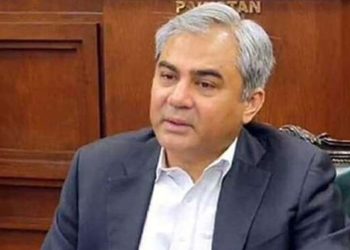There is no denying that Pakistan has a cricket craze. After religion and our national language, cricket is the third most important thing that unites our nation. Men, women, children, and people of all ages love cricket. When the national cricket team enters the ground, people will leave all their work and are busy watching cricket matches. It is on these occasions that we see the real spirit of the nation. They are just a few countries in the world which play cricket but the sport holds a unique status for us.
The New Zealand cricket team recently came to Pakistan after 18 years. They practiced for a few days but abruptly canceled the tour a few moments before the first match. They caused immense frustration not only to Pakistan but also to other cricketing nations. Cricket fans were hurt by the decision.
The fifth-generation warfare is now entwined with the current global politics and is gradually rising. The cancellation of the Pakistan-New Zealand series seems to be a link in the same chain. A few decades ago, opponents had great difficulty in achieving such nefarious goals and often failed. Today, opposing forces and hostile countries create all kinds of problems and hatch conspiracies just to make other notorious.
The New Zealand Cricket Board had received a fake message in August before the Kiwi team arrived in Pakistan, allegedly by the name of Ehsanullah Ehsan, spokesperson of the banned TTP, stating that their team would be in danger in Pakistan. The board was asked to refrain from sending the cricket team to Pakistan. Then another email was received by cricketer Martin Guptill’s wife on which the name of Tehreek-e-Labbaik was used.
The origin of all these threatening messages and emails was traced to India. This clearly shows that India was involved in canceling the series.
A question also arises here that when the Pakistan Cricket Board received reports of the first email, it should have taken swift action to resolve the matter. Pakistan, along with the New Zealand Board and the government, should have conducted security risk assessments in accordance with the prevailing international procedures.
It should have taken them in confidence and offered to review the security measures themselves. It may have been possible that New Zealand could get to the bottom of the matter of where these messages are coming from. This could have stopped that tour from being scrapped and foiled India’s nefarious intentions. New Zealand is a developed country and if the Kiwi government had been contacted in a timely manner, it could have easily assumed with evidence that these false messages were sent from India. This would have addressed all their security concerns.
The cancellation of New Zealand’s tour not only shocked the nation but also left a blotch on our positive image. The scrapping of the tour has caused a huge financial loss as well and the effects will be felt in the future as well. To restore the lost glory of cricket, Pakistan needs to liaison with governments and boards at all levels under a comprehensive strategy before future cricket tours. Effective measures should be taken to avoid such a situation in future.






























